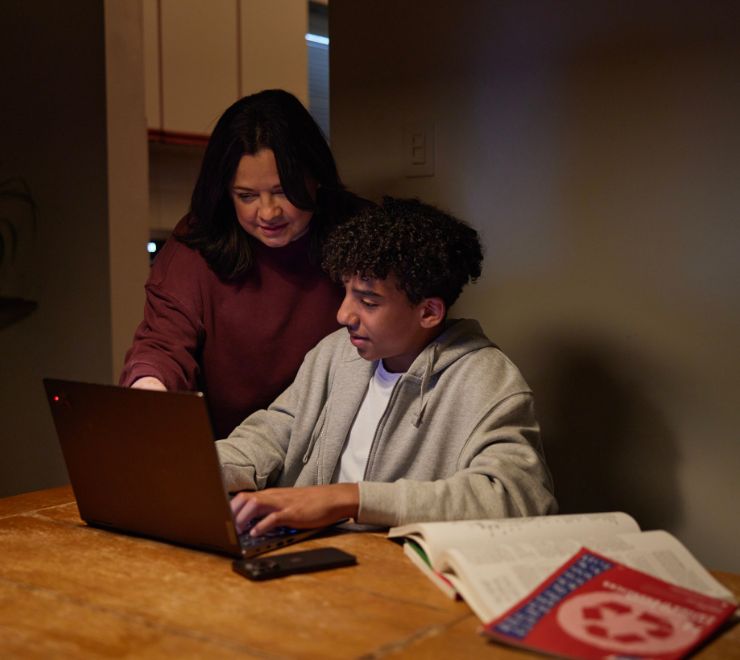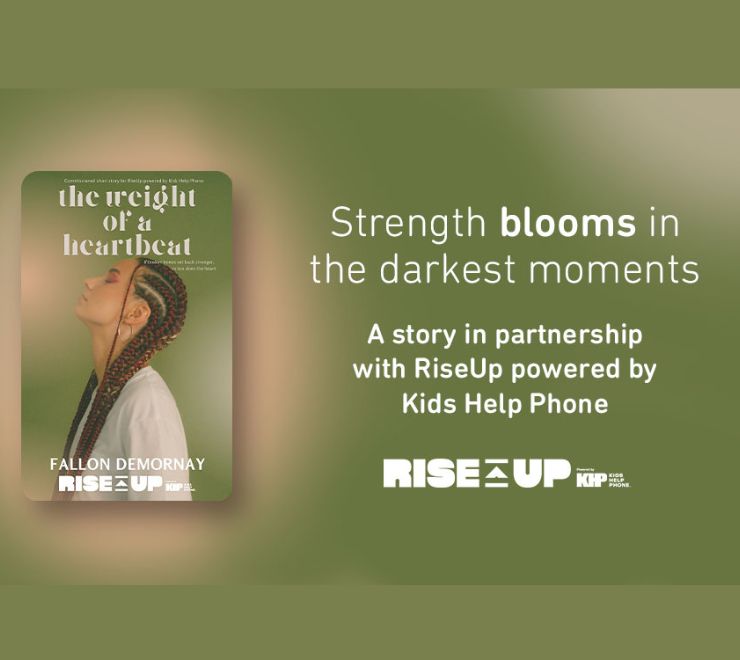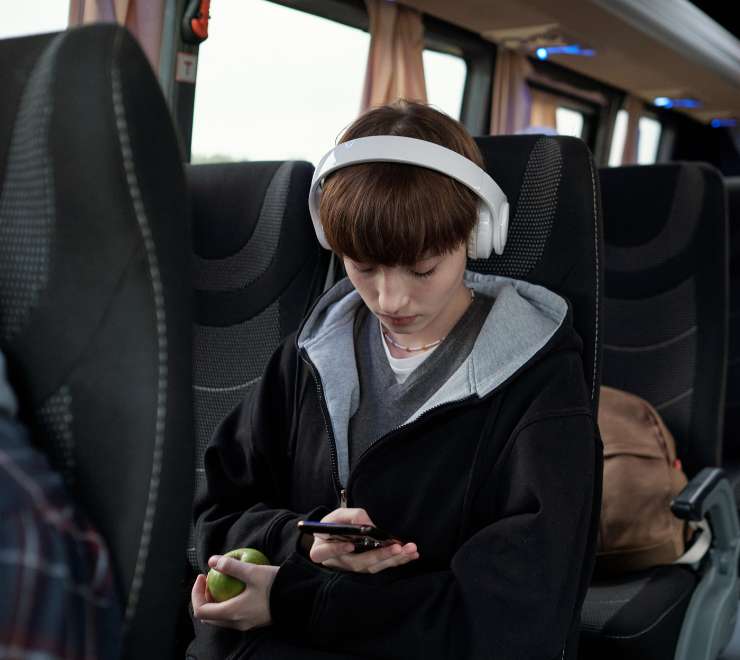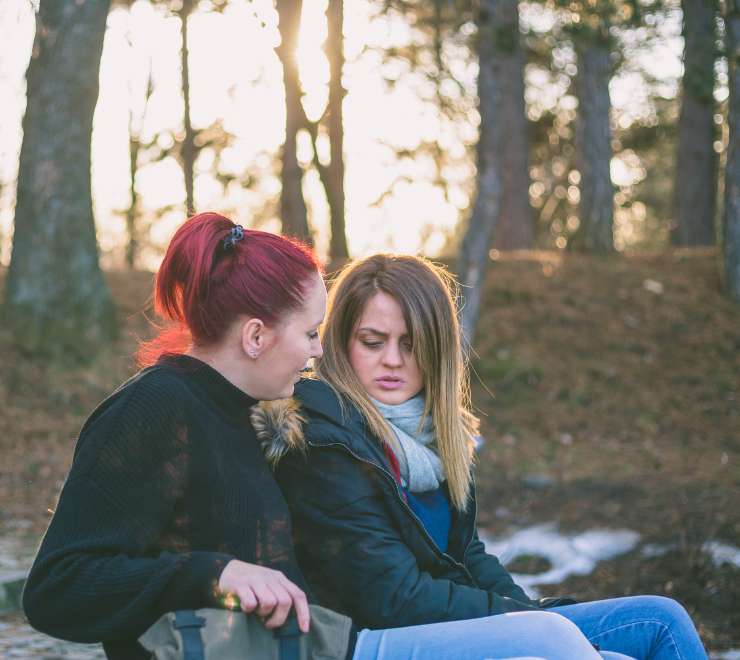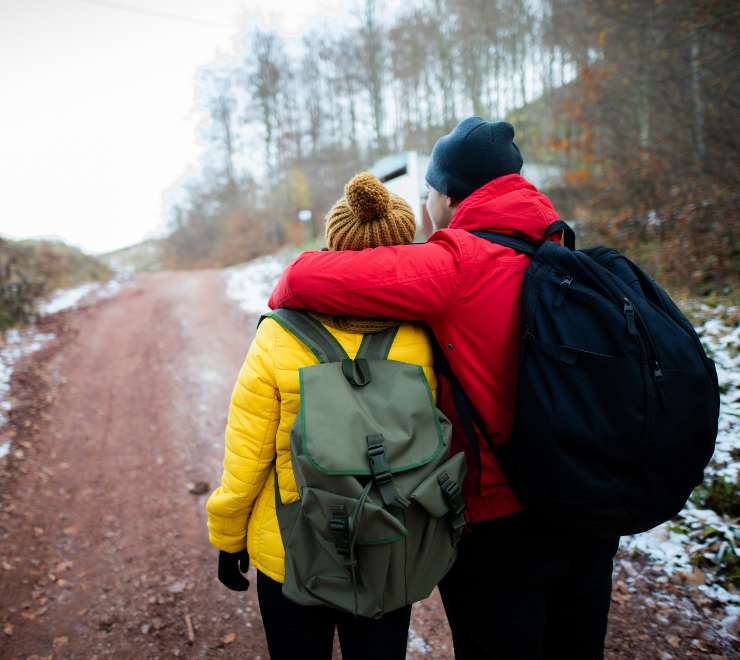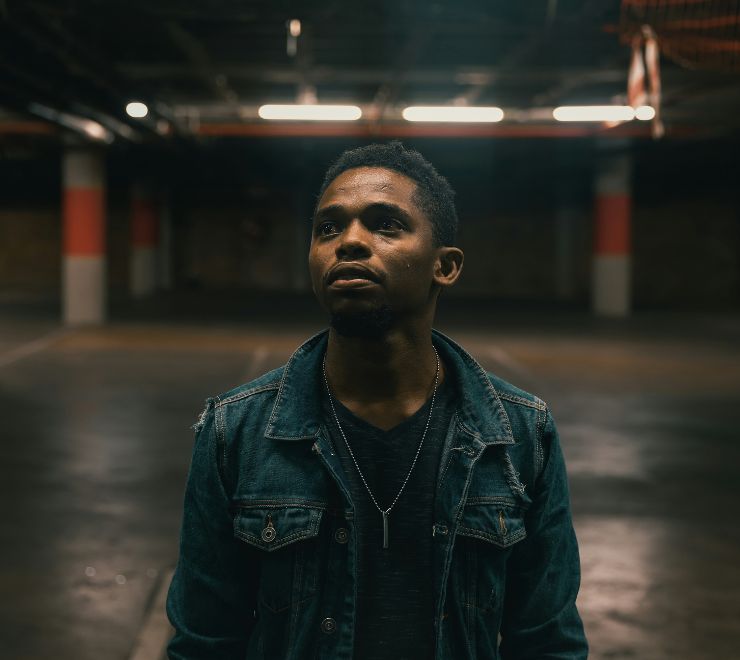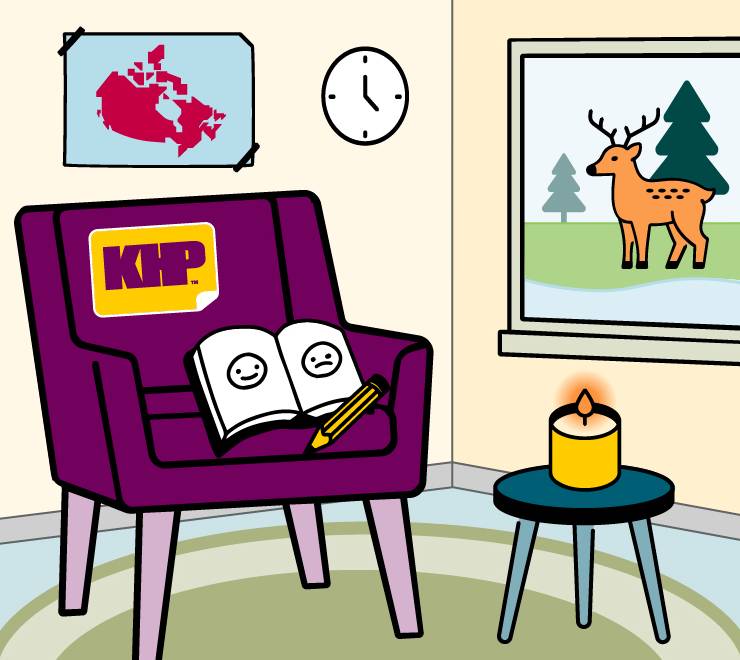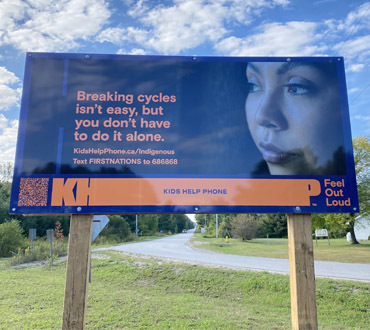Abuse in relationships happens when a person inflicts physical, emotional and / or sexual harm upon their partner(s). You may be navigating this if you have experienced any form of abusive behaviour within an intimate relationship. Abuse in relationships can affect anyone regardless of gender identity, sexual orientation, race, ethnicity, age or any other trait. It can also affect people outside of the relationship including friends, family and / or others who are close to a partner.
In this article, Kids Help Phone uses the term intimate relationships to refer to dating / romantic relationships or any sexual / non-sexual relationships that involve physical and / or emotional closeness / connectedness between people. However, you may have different definitions / use different words to describe the types of relationships in your life than the ones used in this piece. We support everyone in using whatever terms feel best for them.
If you think you may be experiencing abuse in a relationship, or you’re in need of support, you can connect with Kids Help Phone’s e-mental health services 24/7. If you feel like you’re in a crisis, emergency services are available across Canada. Mobile crisis support and other community services are also options in some areas. You can search Resources Around Me to find what’s best for you and available nearest your location.
What are some examples of abuse in relationships?
Abusive behaviour in an intimate relationship is often about one person wanting / having power and control over a partner (info about love versus control from NeedHelpNow.ca). This may start when a person interprets a partner’s behaviour in a way that leads them to react violently in an attempt to manage issues they perceive in a relationship. This behaviour may be a response they learned from others in their life.
It often begins with emotional abuse and may escalate to include other types of abuse. It can start small with infrequent / low impact situations and expand over time to include more frequent / harmful situations that have greater impacts on various areas of a partner’s life.
If you’re wondering if you’re experiencing abuse in relationships, you can read the examples below of different ways that abuse may show up within a relationship:
Emotional abuse:
- threats (e.g. to break up with a partner, die by suicide, self-harm, “out” a partner’s sexual orientation / gender identity, etc.)
- insults
- criticism
- name-calling
- making a partner feel inferior
- making a partner feel guilty
- isolating a partner from friends, family and / or others (e.g. enforcing rules about who they can / can’t spend time with, etc.)
- purposefully ignoring a partner within a conversation
- stalking
- gaslighting (definition from Western University)
Physical abuse:
- pushing
- shoving
- grabbing
- scratching
- biting
- spitting
- punching
- slapping
- kicking
- choking
- slamming a partner against a wall
- throwing objects at a partner
- damaging a partner’s physical property / belongings
Sexual abuse:
- sexual assault
- any sexual activity (e.g. mutual masturbation, oral sex, vaginal sex, anal sex, sexting, other intimate contact, etc.) without consent
- coercing / persuading a partner to do something they don’t want to do (e.g. forcing a partner to pose for nude / sexual photos, pressuring a partner to sext, etc.)
- refusing to use birth control / restricting a partner’s access to birth control
- refusing to use protection to help prevent sexually transmitted infections (STIs)
What are some warning signs of abuse in relationships?
There are ways to recognize abusive behaviour (although everyone’s experience can be different). A person who is abusing a partner may:
- demand to see calls / messages / etc. (with or without their partner’s permission)
- control who their partner talks to and who they spend time with
- limit where their partner can go and when
- tell their partner what they can / can’t do
- constantly check in (e.g. repeatedly call / message, stop by unannounced, etc.)
- threaten to hurt their partner (or themselves) if their partner tries to leave
- act jealous / get angry for no apparent reason
- restrict access to things their partner needs
- spread rumours about their partner (e.g. online, in person, etc.)
- harass / humiliate their partner (e.g. online, in person, etc.)
- share / threaten to share nude / sexual images of a partner without their consent
- blame others for their abusive behaviour, or deny it altogether
Some abusive behaviours within a relationship may be illegal. The abuse may also intensify (become more frequent / harmful) if the person who’s experiencing it isn’t able to get support and / or let others know they need help. Violence can often occur when the person experiencing the abuse leaves or plans to leave the relationship. To create safer situations for yourself, you can connect with people who can support you and have a safety plan in place if you’re thinking about leaving.
I think I’m experiencing abuse in a relationship — what can I do?
Navigating abuse in relationships can be a traumatic experience. Try to remember you’re never responsible or to blame for a partner’s actions. If you’re experiencing abuse of any kind, it’s never your fault. Rather, the person acting abusively may be interpreting situations in a way that leads them to react violently, which may be a learned behaviour. This doesn’t make it OK — it can just help us understand what might be going on.
Unsure if what you’re experiencing is abuse? You can check in with yourself.
If you’re experiencing abuse in a relationship, you may:
- feel fearful of your partner
- feel afraid to leave a relationship even though you want to
- feel guilty / shameful of anything that’s not what your partner values
- not want to talk about the abuse
- feel isolated from your friends, family and / or others (physically / emotionally)
- make excuses for and / or downplay / deny your partner’s behaviour
- feel like you deserve the abuse
- use substances to cope with how you’re feeling about a relationship
- miss a lot of school / work because of the abuse / effects of the abuse
- experience flashbacks / have trouble remembering situations
- feel numb / withdrawn
- have thoughts of suicide (e.g. feel “trapped” and think suicide is the only way out of a relationship, etc.)
- feel embarrassed / ashamed of your relationship / partner
- feel “stuck”
- feel that you’re always “on alert”
- avoid things that remind you of the abuse
What are some actions I can take to plan for safety?
There are things you can do to navigate abuse in relationships. Here are some things you can try:
Learn more
You can learn more about healthy relationships vs. unhealthy relationships, consent, sexual assault and addressing youth dating violence (info from PREVNet) to help you stay informed about abuse in relationships. Knowing the facts can help you feel more prepared to talk about and address your experiences, if you feel ready to.
Talk about it
Even though abuse in relationships can be hard to talk about, you can share your experience(s) with someone you trust, which could help you feel less alone. You can try telling your story to a friend, sibling or a safe adult (e.g. a parent / caregiver, teacher, counsellor, spiritual leader, a person within a culturally relevant community resource, etc.). Kids Help Phone is here to help you navigate tough conversations, and our e-mental health services are available 24/7 if you’re ready to talk. Connecting with someone may help you explore a way forward.
Create a safety plan
You can make a safety plan to help you prepare to protect yourself from a violent situation. A safety plan can help you remind yourself whom you can talk to, where you can go and what other strategies you can use in case of an emergency. You can also use Resources Around Me to search for violence and abuse supports nearest your community. If you’re in immediate danger / are injured, you can call 911 or emergency / community services nearest your area. Try to keep in mind that you may find ways to increase your safety with the support of others — you don’t have to do it on your own.
Abuse is never a part of a healthy relationship. Your safety and well-being come first. If you think you may be experiencing abuse in relationships, you can get support. Learning about healthy relationships, talking to someone you trust and creating a safety plan can be helpful. If you’re not sure where to start, Kids Help Phone is here for you 24/7.

